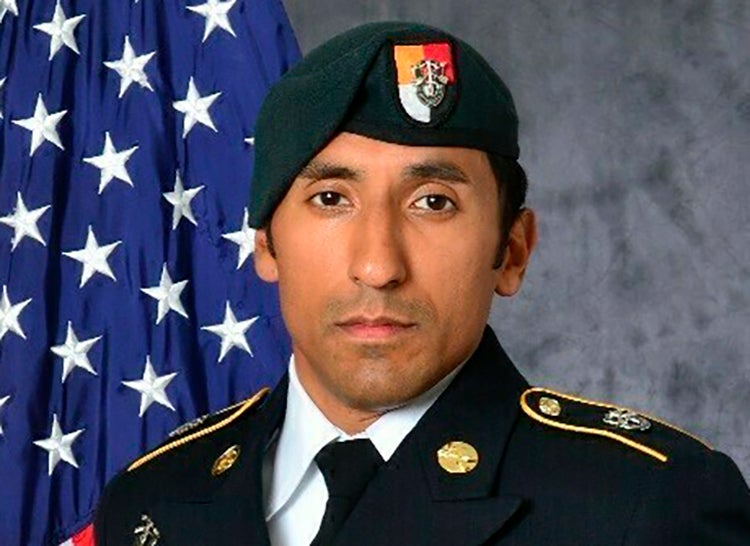Lawyer: Marine played minor role in soldier's hazing death
A defense attorney for a U.S. Marine has told jurors that he played a minor role in the hazing of a U.S. Green Beret and should not be found guilty of murder and other crimes in the soldier’s death

Your support helps us to tell the story
From reproductive rights to climate change to Big Tech, The Independent is on the ground when the story is developing. Whether it's investigating the financials of Elon Musk's pro-Trump PAC or producing our latest documentary, 'The A Word', which shines a light on the American women fighting for reproductive rights, we know how important it is to parse out the facts from the messaging.
At such a critical moment in US history, we need reporters on the ground. Your donation allows us to keep sending journalists to speak to both sides of the story.
The Independent is trusted by Americans across the entire political spectrum. And unlike many other quality news outlets, we choose not to lock Americans out of our reporting and analysis with paywalls. We believe quality journalism should be available to everyone, paid for by those who can afford it.
Your support makes all the difference.A defense attorney for a U.S. Marine told jurors Wednesday that he played a minor role in the hazing of a U.S. Green Beret and should not be found guilty of murder and other crimes in the soldier's death.
Speaking inside a Navy base in Virginia, Marine Lt. Col. Timothy Kuhn said that Mario Madera-Rodriguez never touched Staff Sgt. Logan Melgar during the fatal hazing incident in Africa in 2017 until he tried to help revive him.
“Facts have been manipulated and moved around like a puzzle to fit the government’s theory,” Kuhn said.
Kuhn spoke during closing arguments at the trial for Madera-Rodriguez. The Marine is the last of four American servicemembers to face a court-martial in Melgar’s killing.
Madera-Rodriguez, who belongs to a special operations group in the Marines known as the Raiders, is the only one of the four men to plead not guilty. The others, who include another Marine and two Navy SEALS have already made plea deals with military prosecutors.
Military prosecutors have said the men were angry over Melgar’s perceived slights during their time in Mali. In particular, some were upset that they missed a party at the French embassy in the capital city of Bamako because Melgar and the others got separated in traffic.
Their plan was to choke Melgar into unconsciousness and then humiliate him while filming it on a phone camera, prosecutors said
Despite the “text-book” risks and known dangers of such chokeholds, “they do it anyway,” military prosecutor Benjamin Garcia said Wednesday during his closing argument.
Navy Cmdr. Garcia told the jurors that Madera-Rodriguez chose to get some duct tape to help tie up the Green Beret. And Garcia said Madera-Rodriguez chose to help restrain him while a Navy SEAL applied the chokehold. Melgar died of strangulation.
“They tied him up, and he could not tap out,” Garcia said.
Much of the closing argument from Madera-Rodriguez's defense attorneys was held in closed session because classified information was discussed. But in open court, his attorneys disputed much of the government's case.
Kuhn said that Madera-Rodriguez's task was limited to breaking down Melgar's door with a sledge hammer, putting on some music and bringing in two Malian guards who were part of the joke.
Madera-Rodriguez did not restrain Melgar, Kuhn said.
Kuhn also said that the government's case against Madera-Rodriguez was like “a house of cards” based on a flawed application of the law.
For instance, Kuhn said that Madera-Rodriguez can only be found guilty of felony murder if he's found guilty of burglary, a charge related to the accusation that the men broke into Melgar's room. But Kuhn said the burglary charge depends on the alleged crime happening at night, which he said it no longer was.
“You don't have night time, you don't have burglary,” Kuhn said. “You don't have burglary, you don't have felony murder.”